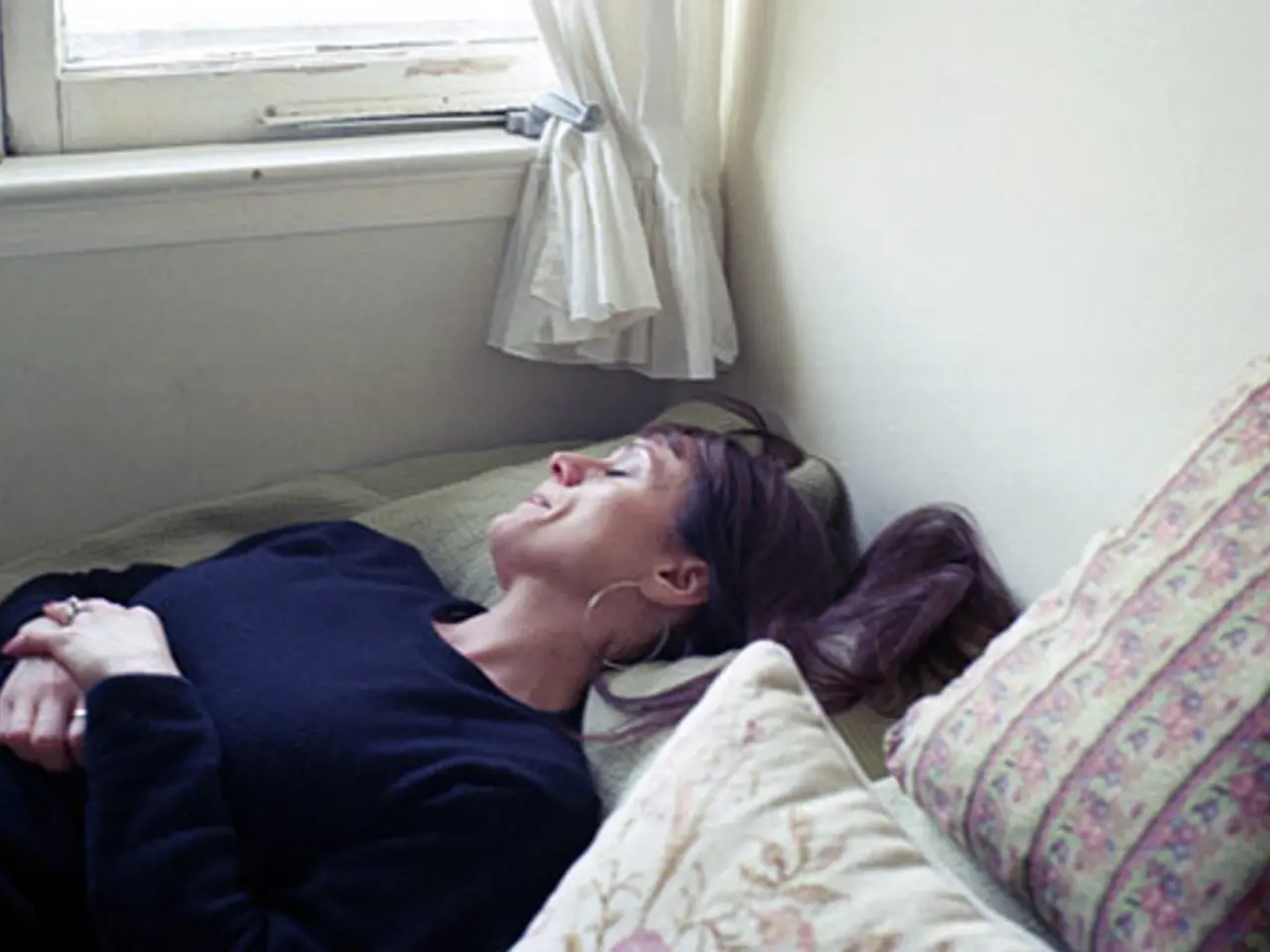Research reveals a decrease in sleep quality for older women, as indicated by the UCSF Fresno study.
In a groundbreaking study, Dr. Lourdes DelRosso, a professor at UCSF Fresno and the Medical Director at the Inspire Health Sleep Center, has shed light on the factors contributing to reduced sleep quality in women over 50.
A good night's rest is essential for overall well-being and daily functioning, yet many women in this age group may not be aware of the significant drop in sleep quality they experience. According to Dr. DelRosso, the study found a 50-percent drop in sleep quality for women over 50 compared to men in the same age group.
The interplay of menopause-related hormonal changes, depression (especially when combined with cardiovascular disease), altered sleep architecture, and lifestyle/environmental factors all contribute to this reduction.
Menopause-related hormonal changes significantly impact sleep, causing hot flashes and night sweats that disrupt sleep continuity. These hormonal shifts also affect the body’s temperature regulation and circadian rhythms.
Increased depressive symptoms are another key factor. There is a strong, dose-dependent association between depressive symptom severity and sleep disorders in postmenopausal women. Mental health thus plays a critical role in sleep health for women over 50.
Cardiovascular disease (CVD) as a modifier also influences sleep quality after midlife. Women with CVD show a stronger connection between depressive symptoms and sleep disorders compared to those without CVD.
Changes in sleep architecture are common as well. Aging typically reduces total sleep time, deep sleep (slow-wave sleep), and increases nighttime awakenings.
Environmental and lifestyle factors also play a role. Sensitivity to environmental cues like light declines with age, impacting the circadian regulation of sleep and contributing to earlier wake times or fragmented sleep. Behavioral practices, such as consuming stimulants, poor sleep environment, and irregular sleep schedules, can worsen sleep quality.
Cognitive and multimorbidity effects are associated with both altered sleep duration and quality. There tends to be a U-shaped relationship where both too little and too much sleep correlate with cognitive dysfunction and depressive symptoms.
To help combat these issues, Dr. DelRosso recommends using a smart device to keep track of sleeping patterns. She also provides tips to reduce nighttime awakenings, such as having a cool and comfortable room to sleep in and avoiding using a phone or reading in bed.
Dr. DelRosso advises keeping an eye on sleeping habits and getting a sleep study or an appointment with a physician if sleep quality seems to be declining. The study was based on data from over 1,400 people who were monitoring their sleep quality at home.
For more news updates, follow Dr. Lourdes DelRosso on Facebook, X, and Instagram. It's time to prioritise sleep health for women over 50, and integrated approaches targeting mental health, cardiovascular health, sleep hygiene, and menopausal symptoms may be the key.
The significant drop in sleep quality that women over 50 experience is linked to menopause-related hormonal changes, specifically causing hot flashes and night sweats that disrupt sleep continuity.
In addition, increased depressive symptoms and changes in sleep architecture, such as reduced total sleep time and increased nighttime awakenings, also contribute to this reduction in sleep quality.




